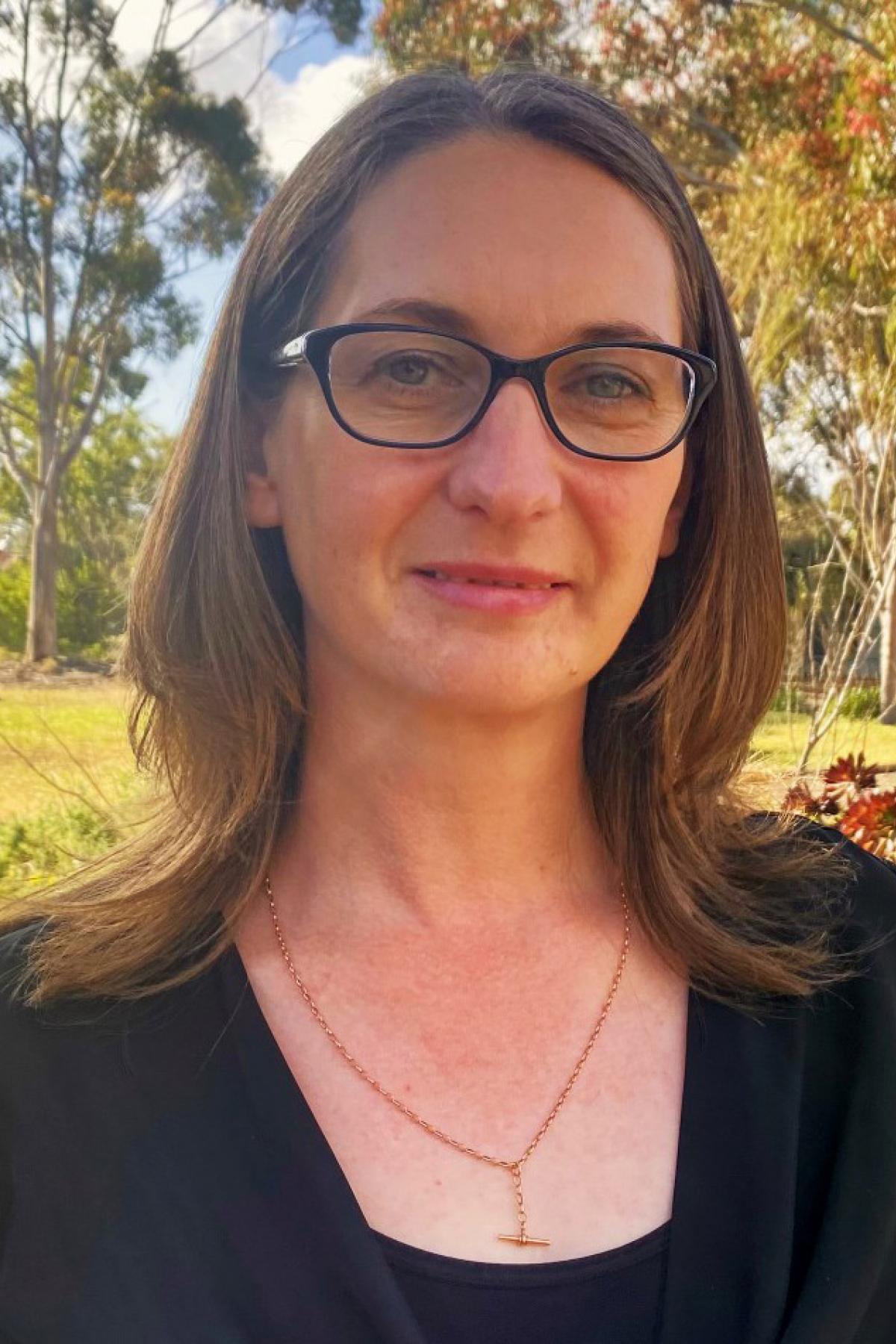Workshops
Select from a range of workshops designed to showcase examples of best practice, enhance the use of educational technologies and provide opportunities to share approaches to student learning. Workshops are peer-led and/or feature specialists from Learning Enhancement and Innovation (LEI).
Are you new to teaching or teaching at Adelaide?
In addition to the wide range of workshops, sessions and online modules available, new teaching staff are required to complete the Introduction to University Teaching within three years of commencing at the University of Adelaide. Find out more about this online course and the face-to-face sessions designed to support you.
The learning platform, MyUni, enables communication and collaboration between you and your students and provides a platform for accessible learning for all students. Learn how to optimise your use below.
-
Introduction to University Teaching
The ADEPT program supports academic and professional staff who are new to teaching or new to teaching at the University of Adelaide in the following two ways:
MyUni course for continuing & fixed-term staff with teaching responsibilities (online/ self-paced)
In this module, you will reflect on your experiences as both a student and educator in order to inform your own approach to teaching within the contemporary higher education context. You will explore key principles in the design of learning and student-centred approaches to enabling active learning for the diverse student cohort. You can self-enrol at any time.
Introduction to University Teaching (Synchronous Zoom session)
This is an opportunity for you to discuss active, inclusive and digitally-enhanced approaches to learning and teaching with peers. This course will be advertised at various times of the year. Please contact us to reserve your place for the next session or keep your eye out for regular updates to this page.
If you are a casual staff member with teaching responsibilities, please ask your School contact about localised induction opportunities.
-
Learn how to optimise your use of the MyUni digital learning platform
Support is also available in the use and and optimisation of the MyUni digital learning platform.
If you are new to using MyUni or would like a general overview, you can also enrol into the Introduction to MyUni self-paced online course for a general overview of how to use MyUni at the University of Adelaide.
Learn how to use MyUni, set up pages and assignments, and understand MyUni minimum requirements, with the MyUni foundations for teaching staff - introduction workshop.
ADEPT
The Adelaide Development Program for Educators and Professionals who Teach (ADEPT) is peer-led professional learning for academic and professional staff in teaching, and support for teaching roles. It showcases examples of good practice and provides opportunities to share approaches to, and the challenges, in enhancing student learning.
-
What are the benefits of participating in ADEPT Activities?
ADEPT enables colleagues to share their challenges and innovations with peers and to discuss how to effectively translate evidence-based and inclusive teaching practices into discipline specific learning environments.1
Participant feedback since 2020 has shown that the opportunity to hear about the teaching practice of peers is highly valued and all ADEPT activities are designed with social learning principles in mind. 2
Testimonials
I have participated in several ADEPT modules during 2021, and each time have learned about new tools, new methods, and new ways of thinking about teaching. This, combined with the opportunity to meet and chat with fellow staff dealing with many of the same teaching challenges, has been a real highlight of the ADEPT program. All this has been made possible through the dedication of the ADEPT teachers, which has been a significant motivator for engaging with the modules and furthering my own professional development as an educator; I cannot speak about them highly enough. I would thoroughly recommend the ADEPT program to anyone who has a teaching role, whether it is giving just a few lectures to teaching across an entire course - there is benefit to be gained from engaging with one or more of these modules.
Dr James Botten, School of Biological Sciences
I liked how the ADEPT team modelled good practice - pre-reading/tasks, engaged us with multiple break out rooms with colleagues and specific tasks to do in those rooms, post-course tasks. I enjoyed there being a diversity of participants and the opportunity to hear from everyone but work with those at a similar level/amount of experience to me.
Participant, anonymous feedback survey
References
1 Boud, D., & Brew, A. (2013). Reconceptualising academic work as professional practice: Implications for academic development. International Journal for Academic Development, 18(3), 208-221.
2 Lave, J., and E. Wenger. (1991). Situated Learning: Legitimate Peripheral Participation. New York: Cambridge University Press. Gibbs, G. (2013). Reflections on the Changing Nature of Educational Development. International Journal for Academic Development 18 (1): 4–14.
Certificates
Participants who complete courses through MyUni will receive non-award certificates of completion for their professional learning records.
Certificates of attendance can be provided to participants who attend at least 75% or more of a synchronous session. This is to ensure that you have benefited from the peer learning available in the sessions. Contact us to request a certificate.
-
Workshop information and registrations
Workshop title Date Time More information Prep for Integrity
Fri 9 Feb, 2024 12.00 - 1.30pm Registrations closed Check for Integrity
Fri 16 April, 2024 12.00 - 1.30pm Registrations closed More sessions available soon!
-
Academic Leads

Dr Matthew Arnold is a Lecturer and Education Specialist within the Adelaide Medical School. Matt has multiple roles within the School, co-coordinating the First-year courses of the Bachelor of Medical Studies/Doctor of Medicine program, leading the Scenario-Based Learning (SBL) curriculum across Years 1-3, and co-coordinating a Year 6 elective rotation involving near-peer teaching in medical education. Matt is a graduate of Adelaide Medical School, and after working clinically as a doctor upon graduating, he transitioned into a full-time academic role to follow his passion for medical education.

Associate Professor Beth Loveys is an Education Specialist & member of the Adelaide Education Academy at The University of Adelaide. Beth aims to inspire & engage students using blended and active learning pedagogy & creates a supportive & caring learning environment where students comfortable to ask questions. She holds several leadership positions at the University & is a Senior Fellow HEA (UK). Beth’s success has been recognised by: Australian Award for University Teaching, Office of Learning and Teaching Citation for Outstanding Contribution to Student Learning, SA Science STEM Educator finalist, Stephen Cole the Elder Award for Excellence & Vice Chancellors and Presidents Award for Excellence & the Australian Awards for University Teaching.

Dr Hayley McGrice is an enthusiastic Education Specialist who has provided exemplary leadership in learning and teaching across the University of Adelaide through her sustained work in the Communities of Practice, the ADEPT professional development program, and more recently as the Associate Dean Learning Quality and Student Experience in the Faculty of SET. Hayley is passionate about improving the student experience through inclusion of students as partners and actively listening to the student voice at all levels of university operations and governance. Hayley was recognised for her outstanding leadership and practice in 2023 when she received a Stephen Cole the Elder Award for excellence in the leadership, support and enhancement of teaching.

Dr Danijela Menicanin is the Associate Dean of Learning Quality and Student Experience and an Education Specialist at the Faculty of Health and Medical Sciences, The University of Adelaide. As an educator, she strives to influence change, promote discovery and innovation and cultivate an enhanced student experience. Her role is focused on implementation of innovative approaches and methodologies, and development of support resources, inspire excellence, reinforce academic advancement and cultivate creativity and in the current, dynamic, technology driven culture of learning and teaching.
Empowered Educators
In 2024 ADEPT will be offering the Empowered Educators series to support teaching quality and the facilitation of student learning in the age of Artificial Intelligence. The focus will be on the application of evidence-based, fit for purpose teaching approaches which engage and motivate students, enable constructive relationships, and are continuously improved through reflective and scholarly practice[1]. An outcome is to generate examples of better practice at the University of Adelaide and provide opportunities to share approaches to and the challenges involved in enhancing student learning.
-
Program Information
All teaching staff will be invited to a learning series which will enable a reflective cycle of evidence-based enhancements to student learning. The series will comprise of workshops in June, July and November complemented by asynchronous resources and activities. You can choose one (or more!) of the three themed streams.
The three themes for staff to engage with are
A. Enabling belonging, connectivity & the relationships which enhance learning.
B. Designing and providing feedback for learning.
C. Developing active, critical, deep thinkers.
The purposeful use of technology to enhance learning is embedded across all of these themes.
[1] Chalmers, D. (2019). Recognising and rewarding teaching: Australian teaching criteria and standards and expert peer review. Canberra: Australia; O'Leary, M. (2017). Teaching excellence in higher education: Challenges, changes and the teaching excellence framework. In A. French & M. O'Leary (Eds.), Teaching excellence in higher education: Challenges, changes and the teaching excellence framework. ProQuest Ebook Central: Emerald Publishing Limited; Wood, P. (2017). From Teaching Excellence to Emergent Pedagogies. In F. Amanda & M. O'Leary (Eds.), Teaching Excellence in Higher Education: Challenges, Changes and the Teaching Excellence Framework (pp. 39-74). ProQuest Ebook Central: Emerald Publishing Limited.
-
Theme A: Enabling belonging, connectivity & the relationships which enhance learning
Workshop 1A. Tuesday 4 June 2024 10am - 12pm Register here!
A sense of belonging and connectedness is crucial for learning. In advocating for a relationship-rich approach to education, Felton and Lambert (2020) note that more than 40 years of evidence has demonstrated putting meaningful human connections at the centre of the undergraduate experience is critical to student success. Relationships between students and between students and teachers that can impact learning occur both within and outside the classroom. This theme will explore practical initiatives that can be implemented within and beyond the classroom.
Guest presenter: Professor Peter Felten, Executive Director, Center for Engaged Learning, Elon University, United States
Ahn, M. Y., & Davis, H. H. (2020). Four domains of students’ sense of belonging to university. Studies in Higher Education, 45(3), 622-634.
Felten, P., & Lambert, L. M. (2020). Relationship-rich education: How human connections drive success in college. JHU Press.
Pedler, M. L., Willis, R., & Nieuwoudt, J. E. (2022). A sense of belonging at university: Student retention, motivation and enjoyment. Journal of Further and Higher Education, 46(3), 397-408Workshop Dates
Workshop 1A. Tuesday 4 June 2024
Workshop 2A. Friday 5 July 2024
Workshop 3A. Thursday 7 November 2024
-
Theme B: Designing and providing feedback for learning
Workshop 1B Thursday 6 June 2024 10:00am - 12:00pm Register here!
Meaningful, timely and actionable feedback enables students to be actively engaged in their learning. Teacher feedback on student learning and approaches to their studies, done well, enables students to be proactive in their own judgements on the quality of their learning. Effective feedback helps students understand the quality of their learning and where they need to place greater attention. If feedback is focused on editing or is only a grade, then students have little to guide them on where to focus their attention to improve. However, when feedback is done well, students can become effective self-regulated learners (SRL). The focus of this theme will be on designing impactful feedback processes throughout the semester that allow students to become active participants in and agents of their own learning.
Guest presenter: Alfred Deakin Professor David Boud, Co-Director, Centre for Research in Assessment and Digital Learning, Deakin University
Baughan P. (2020) On Your Marks: Learner-focused Feedback Practices and Feedback Literacy. York: AdvanceHE.
Boud D., Ajjawi, R., Dawson P., & Tai, J. (2018) Developing Evaluative Judgement in Higher Education: Assessment for Knowing and Producing Quality Work. Routledge Taylor and Francis
Carless D. (2023) Teacher feedback literacy, feedback regimes and iterative change: towards enhanced value in feedback processes, Higher Education Research & Development, 42:8, 1890-1904, DOI: 10.1080/07294360.2023.2203472
Henderson, M., Ryan, T., & Phillips, M. (2019). The challenges of feedback in higher education. Assessment & Evaluation in Higher Education, 44(8), 1237–1252. https://doi.org/10.1080/02602938.2019.1599815
Orrell, J. (2006). Feedback on learning achievement: rhetoric and reality. Teaching in Higher Education, 11(4), 441-456.
Malecka, B., Boud, D & Carless D. (2022) Eliciting, processing and enacting feedback: mechanisms for embedding student feedback literacy within the curriculum, Teaching in Higher Education, 27(7), 908-922, DOI: 10.1080/13562517.2020.1754784
Tai, J., Ajjawi, R., Boud, D., Dawson, P., & Panadero, E. (2018). Developing evaluative judgement: enabling students to make decisions about the quality of work. Higher education, 76, 467-481.
Winstone, N.E. & Boud, D. (2022). The need to disentangle assessment and feedback in higher education, Studies in Higher Education, 47(3, 656-667, DOI: 10.1080/03075079.2020.1779687.Workshop Dates
Workshop 1B. Thursday 6 June 2024
Workshop 2B. Monday 1 July 2024
Workshop 3B. Wednesday 6 November 2024
-
Theme C: Developing active, critical, deep thinkers
Workshop 1C. Wednesday 5 June 2024 10.30am - 12.30pm Register here!
Critical thinking is an important capability for students to develop in higher education and is fostered by robust active learning pedagogies in an environment which encourages critical and creative thinking, metacognition, self-regulation and meaningful engagement. In a time of fast and ubiquitous information and the rising use of Artificial Intelligence, students’ ability to develop their capacity to critically integrate new information with prior knowledge is crucial. Executive functioning, including deep thinking, is developed through practice which increases in sophistication and challenge the more students engage. Evidence suggests students are more likely to take a deeper and more systematic approach to learning if educators focus on achieving conceptual change through student-centred strategies rather than the presentation of content. The investigation of high impact approaches has also shown active learning approaches are effective, regardless of the delivery method used or size of class. Students become critical thinkers when they are helped to understand how it is accomplished and manifested in each discipline they study. The focus of this theme will be on the nature and impact of evidence-based learning pedagogies that assist students to become engaged learners, who are critical reasoners and who become self-regulated agents of their own learning.
Guest presenter: Alfred Deakin Professor Liz Johnson, Senior Deputy Vice-Chancellor Academic, Deakin University
Bahr, N. (2010) "Thinking Critically about Critical Thinking in Higher Education," International Journal for the Scholarship of Teaching and Learning: 4 (2), Article 9. Available at: https://doi.org/10.20429/ijsotl.2010.040209
Bellaera, L, Weinstein-Jones, Y., Ilie, S. and Baker, S.T. (2021) Critical thinking in practice: The priorities and practices of instructors teaching in higher education, Thinking Skills and Creativity, 41, ISSN 1871-1871
Brookfield, S. (2020) Teaching for Critical Thinking. International Journal of Adult Education and Technology. 11(3)
Golden, B. (2023). Enabling critical thinking development in higher education through the use of a structured planning tool. Irish Educational Studies, 42(4), 949–969. https://doi.org/10.1080/03323315.2023.22584971
Yuan, R.E., Yang, M. and Stapleton P. (2020) Enhancing undergraduates’ critical thinking through research engagement: A practitioner research approach. In Thinking Skills and Creativity. 38, ISSN 1871-1871 https://www.sciencedirect.com/science/article/abs/pii/S187118712030211X?via%3DihubWorkshop Dates
Workshop 1C. Wednesday 5 June 2024
Workshop 2C. Tuesday 2 July 2024
Workshop 3.C Tuesday 5 November 2024
Designing for Learning
The Designing for Learning workshops, facilitated by Learning Enhancement and Innovation (LEI) for academic staff, focus on designing learning for blended and online environments. These workshops cover a diverse range of topics through guided activities and hands-on exercises.
-
Workshop information and registrations
For more information about a workshop, select its title.
This will provide you with information on learning outcomes, mode of delivery, and scheduled dates. You will also be able to register using this link.
Workshop title - select for more information and to register Duration & delivery method 3 hrs
Face-to-faceExplore generative AI from a student perspective 1 hr
Online (MS Teams)Design empowering collaborative learning experiences 3 hrs
Face-to-faceDesign multimedia for teaching and learning to optimise cognitive load 1.5 hr
Online (MS Teams)Develop holistic assessments, rubrics and feedback 3 hrs
Face-to-faceDevelop robust teaching evaluation methods - eSELTs and beyond 3 hrs (if attending both Pt 1 & Pt 2)
Face-to-faceRefine learning outcomes for existing courses (existing UoA courses only) 1 hr
Online (MS Teams)Two sides of popular media - films and videos in teaching and learning 1 hr
Online (MS Teams)Use generative-AI to boost your assessment design and feedback 1.5 hr
Online (MS Teams)Write effective multiple-choice quizzes with AI-assistance 1 hr
Online (MS Teams)Can't find what you're looking for? Contact us for a customised workshop.
Educational Technology
The Educational Technology workshops are designed for academics and facilitated by Learning Enhancement and Innovation (LEI). These workshops provide valuable insights and practical guidance on utilising educational technologies to enhance the student learning experience.
-
Workshop information and registrations
For more information about a workshop, select its title.
This will provide you with information on learning outcomes, mode of delivery, and scheduled dates.
You will also be able to register using this link.
Can't find what you're looking for? Contact us for a customised workshop.
Information Technology and Digital Services
ITDS offers training for staff on a number of tools which can be used to support Learning and Teaching. The following training workshops are available for bookings.
For more bespoke group sessions, or other training offerings, email it.training@adelaide.edu.au
-
Workshop information and registrations
For more information about a workshop, select its title.
This will provide you with information on learning outcomes, mode of delivery, and scheduled dates. You will also be able to register using this link.
Workshops Duration and Delivery Using Zoom for Virtual Classrooms 1 hr online (Zoom) Advanced Zoom Functionality 1 hr online (Zoom) MS Teams Welcome and Overview 1 hr online (MS Teams) MS Teams for Collaboration, File Sharing, and More 1 hr online (MS Teams) MS Teams Advanced Applications 1 hr online (MS Teams) M365 Platform and Applications 45 min - 1 hr online (MS Teams)
Feel free to contact us for more information or for a discussion concerning your professional learning needs.
